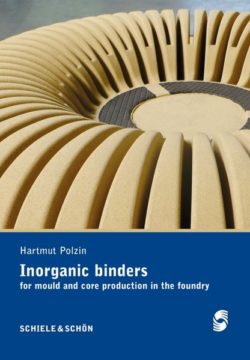In addition to clay minerals, which have been used for decades as a binder for the compaction moulding process (with bentonite moulding materials), there are also inorganic chemically curing binder systems of long-standing tradition in the foundry. Since the forties of the last centry cement has been used for mould and core production. The core production was then revolutionized in the fifties by the water glass CO2 process. Since the Fifties, the classical inorganic systems have superseded the organic binder systems, with notable in-crease around the 1970s and 80s. Due to a constantly increasing environmental awareness in the foundry industry, which has been increasingly underpinned by government calls for an improvement in casting production, the almost forgotten inorganic binder systems had a renaissance at the turn of the century. There is some misleading and even conflicting information surrounding the current state of the application, as well as its achievable property level. Therefore, this book should be attempted as complete as possible. It is aiming to provide answers to the question of what can afford inorganic binder systems at the present. On the other hand this book should open questions or problems to be solved for a further increasing of proportions in mould and core production in the coming years.
- Veröffentlicht am Montag 13. Oktober 2014 von Schiele & Schön
- ISBN: 9783794908844
- 228 Seiten
- Genre: Natur, Sachbücher, Sonstiges, Technik
